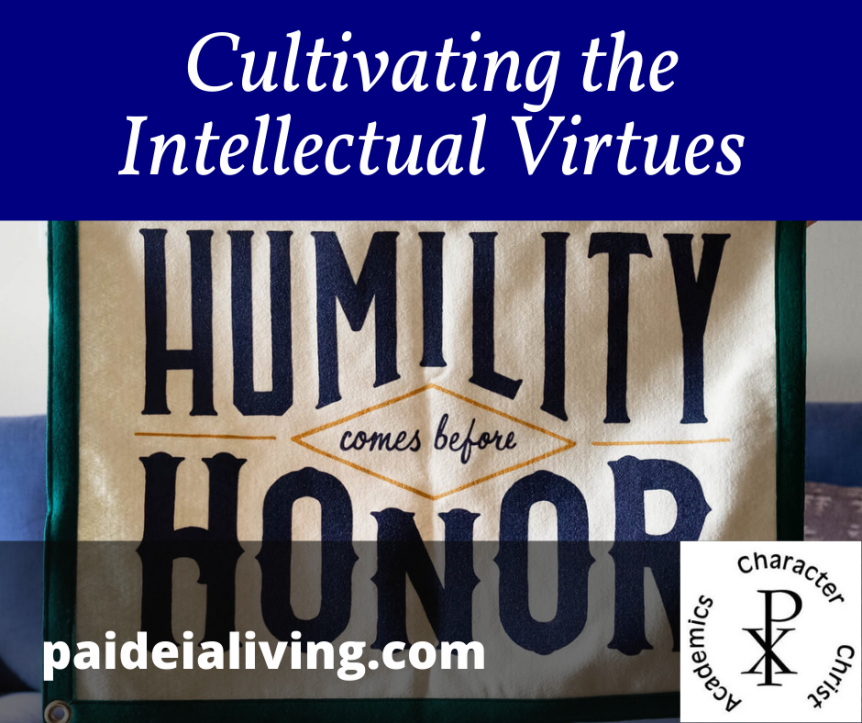“Dishonesty, cheating, arrogance, laziness, cowardice—such vices are rampant in society, even among the world’s most prominent leaders. We find ourselves in an ethical vacuum, as the daily headlines of our newspapers confirm again and again. Central to the problem is the state of education…”
In his book Virtuous Minds: Intellectual Character Development, Philip Dow lays out a framework for how we can love God with all of our minds. He establishes that the recovery of virtue is not about doing the right things but about becoming the right kind of person.
Over the past several years at Paideia, Dow’s book has been instrumental in pinpointing for us the intellectual virtues that are lacking in today’s society and must be instilled in students. As your child’s teachers cultivate character in the classroom, we consider the seven virtues of courage, carefulness, tenacity, fair-mindedness, curiosity, honesty, and humility.
COURAGE
In To Kill a Mockingbird, Atticus Finch explains to his children why he took the controversial case: “I wanted you to see what real courage is, instead of getting the idea that courage is a man with a gun in his hand. It’s when you know you’re licked before you begin, but you begin anyway and see it through no matter what.”
At Paideia, we want students to develop the intellectual courage to do hard things, to stand up for themselves, and to speak forth boldly. Whether it is raising a hand in class, inserting one’s self into a Harkness discussion, or declaiming a speech in front of two hundred people, we want our students to be men and women of courage.
CAREFULNESS
The essayist Samuel Johnson once wrote that: “It is more from carelessness about truth than from intentionally lying that there is so much falsehood in the world.”
At Paideia we want our students to avoid being glib or heedless in their work, to eschew being sloppy or lackadaisical in both their thoughts and their actions. Instead, we want them to cultivate intellectual carefulness, remembering that, as Johnson says, error can creep in through carelessness as much as through intentional lies.
TENACITY
C.S. Lewis wrote that: “The only people who achieve much are those who want knowledge so badly they seek it while conditions are still unfavorable. Favorable conditions never come.”
Tenacity is what we want for our students at Paideia—to persevere past tiredness and despite distraction, to mine for understanding like silver and dig for wisdom like buried treasure. We want students who finish copying the sentence even when their hand hurts, who struggle forward in their math homework even when they failed the last test. We want students with the grit necessary to pursue knowledge even when the conditions are unfavorable.
FAIR-MINDEDNESS
Aristotle warned that, “it is better in fact to be guilty of manslaughter than of fraud about what is fair and just.”
Our human nature loves to be unfair and unjust in representing others we disagree with. At Paideia, we want our students to listen to others’ viewpoints and to represent those viewpoints fairly. We want them to fairly represent what a text actually says before stating their own opinion on the text. We want them to engage with real opponents rather than creating straw man arguments to knock down.
CURIOSITY
The Apostle Luke wrote: “Now the Berean Jews were of more noble character than those in Thessalonica, for they received the message with great eagerness and examined the Scriptures every day to see if what Paul said was true.”
We want our students at Paideia to receive the knowledge of the Creator and his Creation with this same eagerness, thirsting to search out more for themselves. We want them, as learners, to be in the role of an anticipator, making predictions where the lesson or text is heading, searching for additional information beyond the textbook, and discovering connections with previous learning.
HONESTY
In his autobiographical novel Little Britches, Ralph Moody records these words from his father: “A man’s character is like his house. If he tears boards off his house and burns them to keep himself warm and comfortable, his house soon becomes a ruin. If he tells lies to be able to do the things he shouldn’t do but wants to, his character will soon become a ruin.”
Our vision statement at Paideia states that we want students to build their characters as diligently as they sharpen their minds. A huge part of character-building is honesty—honesty to others and honesty to self. We want our students to have a commitment to truth that overrides all desires for convenience and gain. We want them to avoid self-delusion and tell the truth about themselves, about others, and about the world that God has made.
HUMILITY
G. K. Chesterton wrote: “If a man would make his world large, he must be always making himself small.” The self that is puffed up cannot see the wonders that surround him.
Submission is essential to learning—the student must not think himself above the teacher, above the text, above the lesson. At our secondary campus, we have a banner in the hallway that says: “Humility before Honor.” Our desire is for students to achieve the honor that comes from the path of humility.
CONCLUSION
At Paideia, we believe, as G.K. Chesterton wrote, that: “Education is not a subject, and does not deal in subjects. It is instead a transfer of a way of life.” As students are immersed in the paideia of the Lord, in the culture and counsel of Jesus, these intellectual virtues will become part of their way of life.


